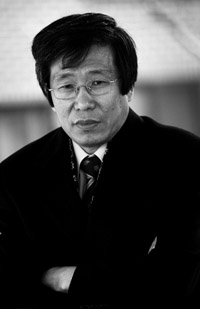 By KIM Seong-kon, Professor of English Literature
By KIM Seong-kon, Professor of English LiteratureWe often make hasty generalizations and create unfounded stereotypes. Most habitually, we tend to stereotype the West. Indeed, we frequently say,"Westerners do not like this," or"they don't do that in the West." Our generalizations are usually only partially true, for there are vast differences even among Western countries.
In many Korean books, however, one frequently encounters quite a few oversimplified claims such as:"Western civilization stemmed from stock farming, whereas Eastern civilization originated from agriculture." That, however, is a hasty generalization; many European countries began as agricultural societies, while many Asians - especially Central Asians and Mongolians - were ranchers and cattle breeders.
In the same way, the West also tends to generalize about the East. Westerners often utter biased, if not derogatory, remarks such as"slanted Chinese eyes" or"the Oriental mind," which implies,"Orientals are whimsical, inaccurate, and unreliable." I met quite a few Westerners who were mad at Korean cartoonists' caricatures of Westerners."Not all Westerners have a big nose," they complain."Why do you make fun of our physical appearance?" But I have seen plenty of Western caricatures of Asians with exactly the same problem; instead of drawing eyes, Western cartoonists almost always draw two thin, slanted lines."Not all Asians have small slanted eyes," I protest back."Why do you make fun of our physical appearance?"
The same hasty generalization can be found even in eminent scholars' writings. In his seminal book,"The Anatomy of Criticism," for example, Northrop Frye wrote:"Oriental fiction does not, so far as I know, get very far away from mythical and romantic formulas." An Asian novelist or scholar would immediately object to Fry's mistaken generalization; perhaps Frye was thinking of stories such as"Arabian Nights," but surely not all Oriental fiction is mythical and romantic. Perhaps these misguided generalizations arise from cultural differences. Western theory often cannot be applied directly to Eastern culture. According to Freud, the snake is undeniably a phallic symbol. In East Asia, however, the snake symbolizes feminine qualities such as quietly waiting and recoiling. In his celebrated poem,"Flower Snake," poet So Chong-ju writes on the striking femininity of a gorgeous snake:
A back road pungent
with musk and mint.
So beautiful, that snake
What huge grief brought
it to birth?
Such a repulsive body!
You look like a flowered
silk gaiter ribbon!
Those lovely lips,
blazing crimson,
As if you'd been
sipping Cleopatra's blood.
Sink in now, snake!
Our young Sunnee's
all of twenty, with
pretty lips, too,
Like those of a cat
Sink in now, snake!"
Many Westerners also tend to think that Asians have weak personalities, are timid in their actions, and selfish in general, which is definitely a hasty generalization. In Asia, there are numerous courageous and tough people who are reliable, altruistic and magnanimous. Asians - especially Northeast Asians who subscribe to Confucianism - may seem reserved not because they have a weak personality, but because they are taught to be modest and polite. In Korea, for example, people traditionally do not respect a flamboyant talker: they call smooth talkers"street panacea sellers," implying their untrustworthiness. Perhaps that is why unlike Western students, Korean students are reluctant to actively participate in class discussions.
We also make plenty of mistaken generalizations when judging people from different regions or countries. Without much thought, for example, we stereotype others, saying,"People from that region are not trustworthy." Surely, that is a typical mistaken generalization. We also tend to say,"Americans are materialistic," or the"Japanese are too economic." These stereotypes, too, are incorrect in both cases. First, experts argue that Americans are not materialistic; they just have the business mind. In"Media Cultures," Danish scholar Michael Skovmand assert that Europeans began calling American G.I.s"materialists" during World War II out of jealousy because American soldiers were so affluent during a time when many Europeans were destitute. Second, not all Japanese people are economically oriented; they are just prudent and well-organized.
Some time ago, when a group of Korean professors were invited to Japan, the Japanese host institution gave us a packet with informational brochures and three subway tickets. Some of my colleagues immediately shouted out,"What is this? Three subway tickets?" To me, however, the three tickets were a splendid emblem of warm Japanese hospitality. First, purchasing a subway ticket in Japan is never easy for a foreigner. So they were very thoughtful to provide us with tickets in advance. Secondly, during the conference, we actually needed to take the subway three times to get to the convention venue. So how meticulous it was for the host to prepare the exact number of tickets we needed!
It is so sad that we are enslaved by prejudices against other nations, other regions, and other people. We should try to get to know others before making hasty generalizations and developing prejudices. Not all people are the same. We should not stereotype anyone, or we risk living our lives never truly getting to know and appreciate others.

